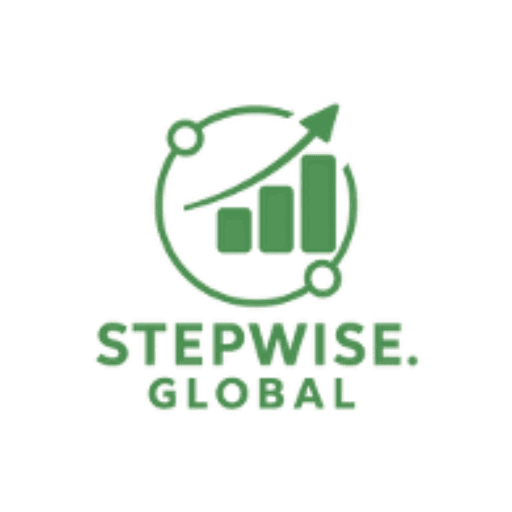Our Legacy
A Swedish Initiative since 1989
The Initiative was founded in 1989 by the Swedish doctor and cancer researcher Karl-Henrik Robèrt. Given all the controversy and debate around Sustainability, this new initiative was all about asking science to respond to the question: “So, what can we agree on”. This approach was internationally unique, and Robèrt founded an organization to promote it, The Natural Step (Det Naturliga Steget).
Today the initiative has spread to numerous projects, universities, business, and regions across the globe. They have all contributed to gradually develop a methodology around the basic idea, Framework for Strategic Sustainable Development. Its international scientific hub is at Blekinge Institute of Technology where Robèrt holds a chair on this topic.
So, the organization started as a response to the environmental challenges the world was facing, with the aim of creating and testing a science-based framework for sustainable development that could guide organizations, businesses and communities to enter a systematic course towards systemic (full) social and ecological sustainability. The organization’s work has inspired other sustainability initiatives and has become a model for how science and practice can come together to create real change in hands-on developments of the private as well as public sectors.
The Stepwise Global Foundation is a formalization and institutionalization of this initiative. Through the foundation, a more long-term and stable form has been adopted where FSSD, Framework for Strategic Sustainable Development, aims to become mainstream for systemic (taking the whole world into account) systematic (stepwise processes) and strategic (improved ROI from the beginning).


Founding and Early Development (1989-1990s)
Karl-Henrik Robèrt was working as a doctor in cancer research when he became increasingly aware of how human activity damaged the environment and how this in turn affects health. Robèrt realized that a holistic and science-based approach was needed to deal with environmental issues and involved researchers and experts from different disciplines to develop a common understanding.
A central part of this process was the creation of the so-called “System Conditions for Sustainability”, four basic principles that describe how humanity can avoid contributing to the systematic degradation of nature and society. They emerged after annual discussions among 65 sustainability researchers. These four principles were what they all agreed on.
A picture book with accompanying audio cassette was sent to all Swedish households and schools in 1989. The theme was the basis for Robèrt’s continued professional career at Blekinge Institute of Technology as professor of Strategic Sustainable Development, writing scientific papers, supervising PhD students and co-founding of its international program Masters in Strategic Leadership towards Sustainability (MSLS). The societal body, which suffers from the deadly disease “non-sustainability”, should, as in medical science, attack the disease at the root causes without creating other and worse diseases. That is, building on the idea of a fully healthy patient in the future.
More and more initiatives from practitioners and scientists around the world learnt about the approach, and decided to take part in its further developments. Take a look at a sample of Testimonials about this.
Global Expansion and Impact (1990s onwards)
During the 1990s, FSSD developments began to gain international impact and Karl-Henrik Robèrt received international recognition and awards for his leadership in sustainability and for having created a framework that helps organizations and communities worldwide work towards a fully sustainable future. His work has inspired many and have a profound impact on how we think about and work with sustainable development. During the first 35 years, more and more business, regions, universitites where working as “test-pilots” to support FSSD developments and strategies for sustainable development.
Today, the Stepwise Global is all about moving from improving and testing, to scaling up in a modern IT world. Global dialogues, Digitalizations and AI stand out as natural elements in this.

Awards
Green Cross Millennium Award (1999)
Karl-Henrik Robèrt, the founder of FSSD was awarded this award by Mikhail Gorbachev and Green Cross International for International Leadership promoting strategic sustainable development.
World Swede of the Year (1999)
The founder of FSSD, Robèrt, was named “World Swede of the Year” by Swedes in the World for his efforts in the area of sustainability and for having put Sweden on the map as a leading nation in the field of environment and sustainable development.
Blue Planet Prize (2000)
The Blue Planet Prize is regarded as the Nobel Prize for Sustainable Development, the most prestigious international environmental award. Its laureates are selected by Tokyo University.
Unilever Global Leadership Award (2005)
This award recognized Robèrt’s leadership and his influence on global companies, including Unilever, where he helped integrate sustainability principles into the companies’ business strategies.
Skandia Ideas for Life Award (2006)
This award was given to Robèrt for his work in creating a sustainable society through The Natural Step and for his ability to inspire people and organizations to work for a sustainable future.
Karlskrona Sustainability Award (2015)
Robèrt received this award for his long-term and profound commitment to sustainable development and for his work in making sustainability a central part of community planning.
